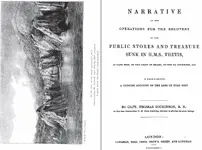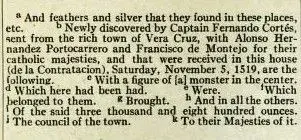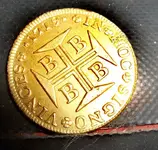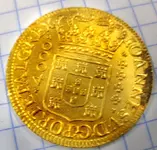Alexandre said:
Oceanscience said:
We have seen in recent years how the Internet media has been making billions of dollars out of advertising. Can this know-how be used to generate cash from treasure, without selling the treasure?
People keep going to Cairo (well, right now not as much as they used to go) to see the Pharaoh's golden mask or to Paris, to see the Mona Lisa.
The Mona Lisa as a National Treasure is an excellent example. If she ever was for sale, how much would she bring?
At present she costs a lot in maintenance. One expensive woman she is. If she is a woman, anyway.
But what does she bring to France?
The tourism revenue of France is many billions per year. A good part comes from museums like the Louvre. Most people immediately think of the ticket fee, charged to visit the Louvre, to see the Mona Lisa among other National Treasures. However, the ticket fee is only a very minor income, not even enough to pay for the maintenance of the museum.
The sales of the museum gift shop amount to about the same amount as the ticket sales. I don't have the statistics of the Louvre at hand, but world wide museum statistics are fairly uniform in this respect.
Where are the other revenues?
People travel to Paris to see the Mona Lisa. A part of the travelling cost is spent in France. Hotels, Restaurants, Taxis, Trains, etc. Each tourist spends about 100 to 500 Euros per day during his stay in France.
24,000,000 tourists spending 100 Euro each = 2,400,000,000 Euros
For every hour we can entice the tourists to stay longer in France, the revenue will increase by about 100,000,000 Euros.
Good money, distributed among the tax payers.
Museums are about telling a story. A good story teller can fascinate the listener so much that he forgets time.
Nature has her way of reminding the people of time. After few hours thirst and not much later hunger, are good reminders. In fact, museum statistics tell, that after 2 hours people are ready for a snack, coffee, or at least water. What does this little bottle of "Evian" bubbly water cost?
Keep the people's attention for 4 hours and they are ready for a meal. Some very good restaurants not far from the Louvre, is that a coincidence?
If you manage to keep the tourists in town for more than 6 hours, they will spend the night. Hotels have a lot of staff. Many jobs there.
This is looking at National Treasures from the tax payers view. Tax payers want a job, their daily bread and butter and glass of red wine. At least the French tax payers want.
How would this story look like for our USA friends? Should I talk about the Smithsonian? No, I give you a more average Joe comparison. Actually we can call him Mel.
Mel Fisher was a chicken farmer but after a long and tenacious quest, he became one of the most famous treasure hunters, recovering a vast treasure from the shipwreck of the galleon "Atocha".
He sold a part of his treasure. Another part he donated to a not for profit foundation. Over the years, the revenues from the foundation's treasure exhibit, where his story is told to the avid listening tourists, is many times more than all the treasure that Mel Fisher ever sold.
And of course, the revenues the Mel Fisher story generated for Key West, where the exhibit is located and Florida in general, is many many times more than all the treasure that Mel Fisher ever found.
Mel Fisher's treasure is also a "National Treasure"










